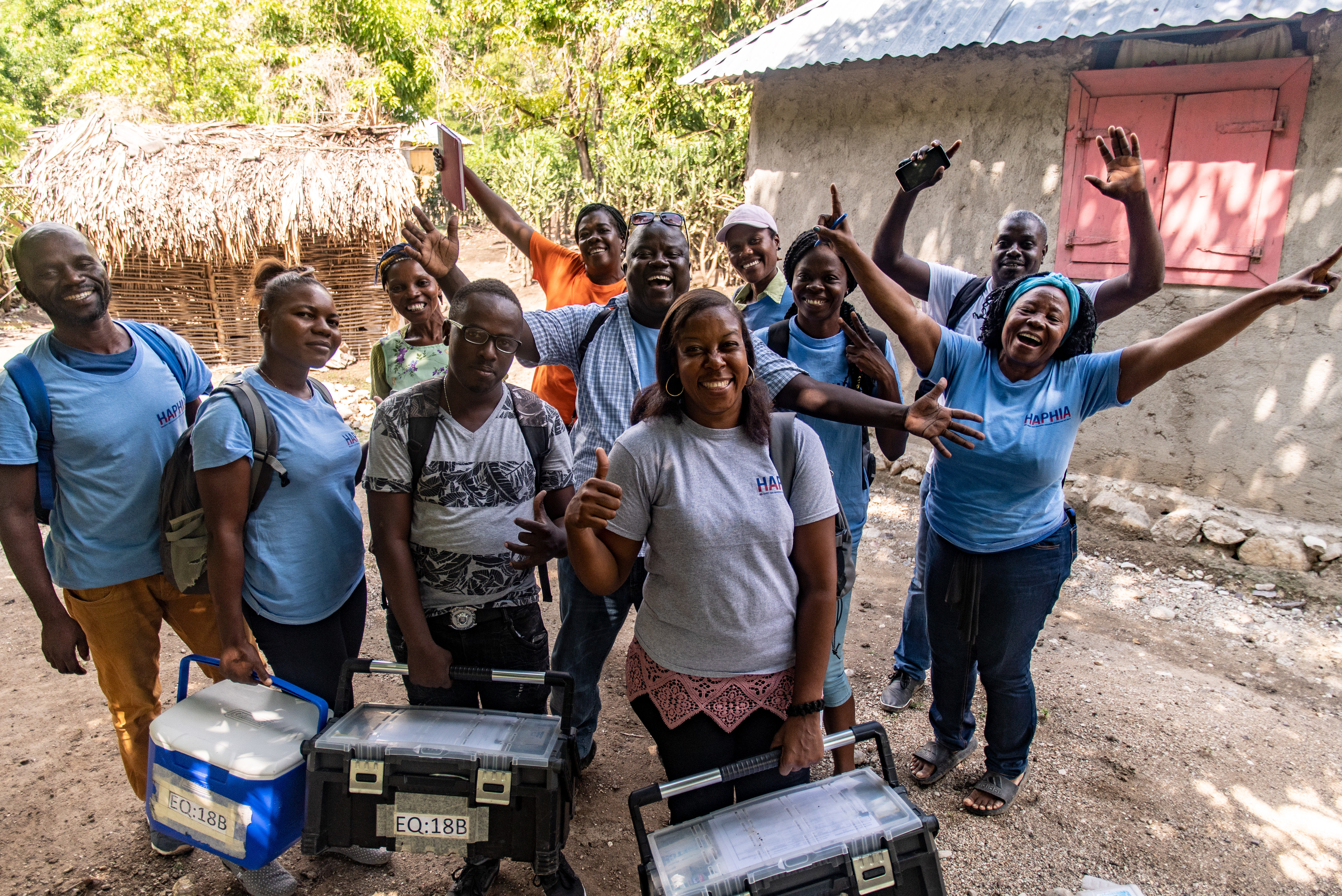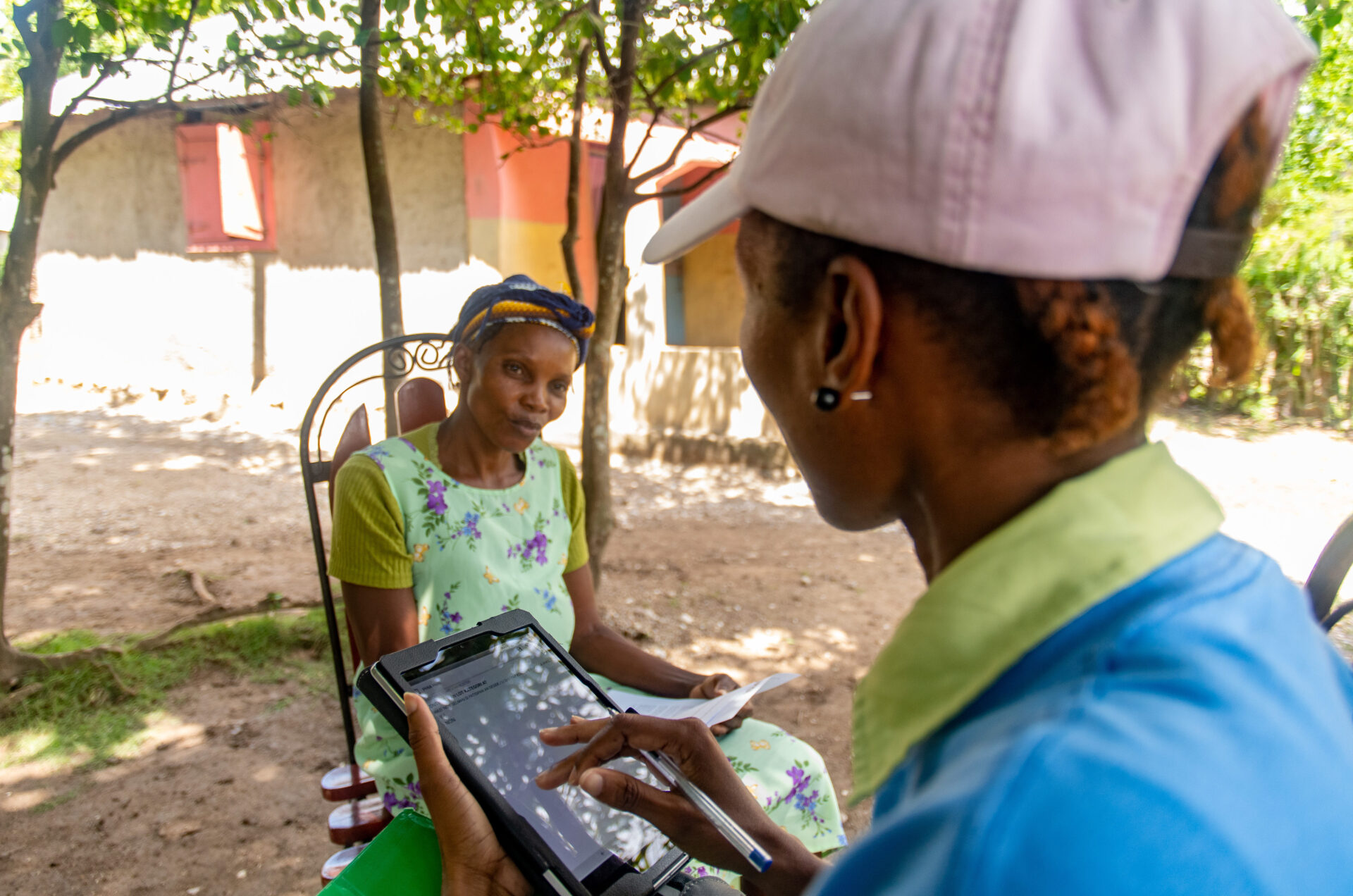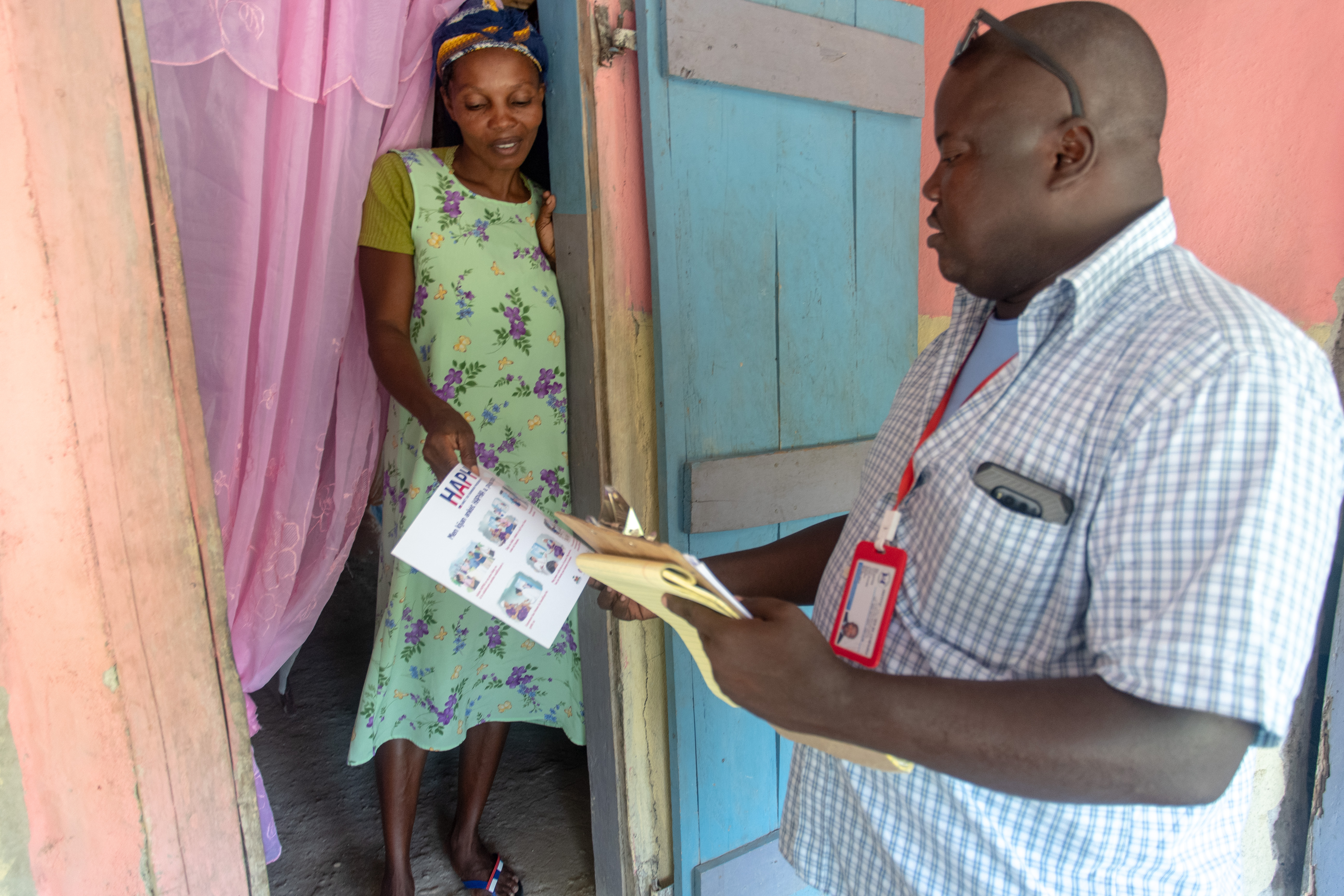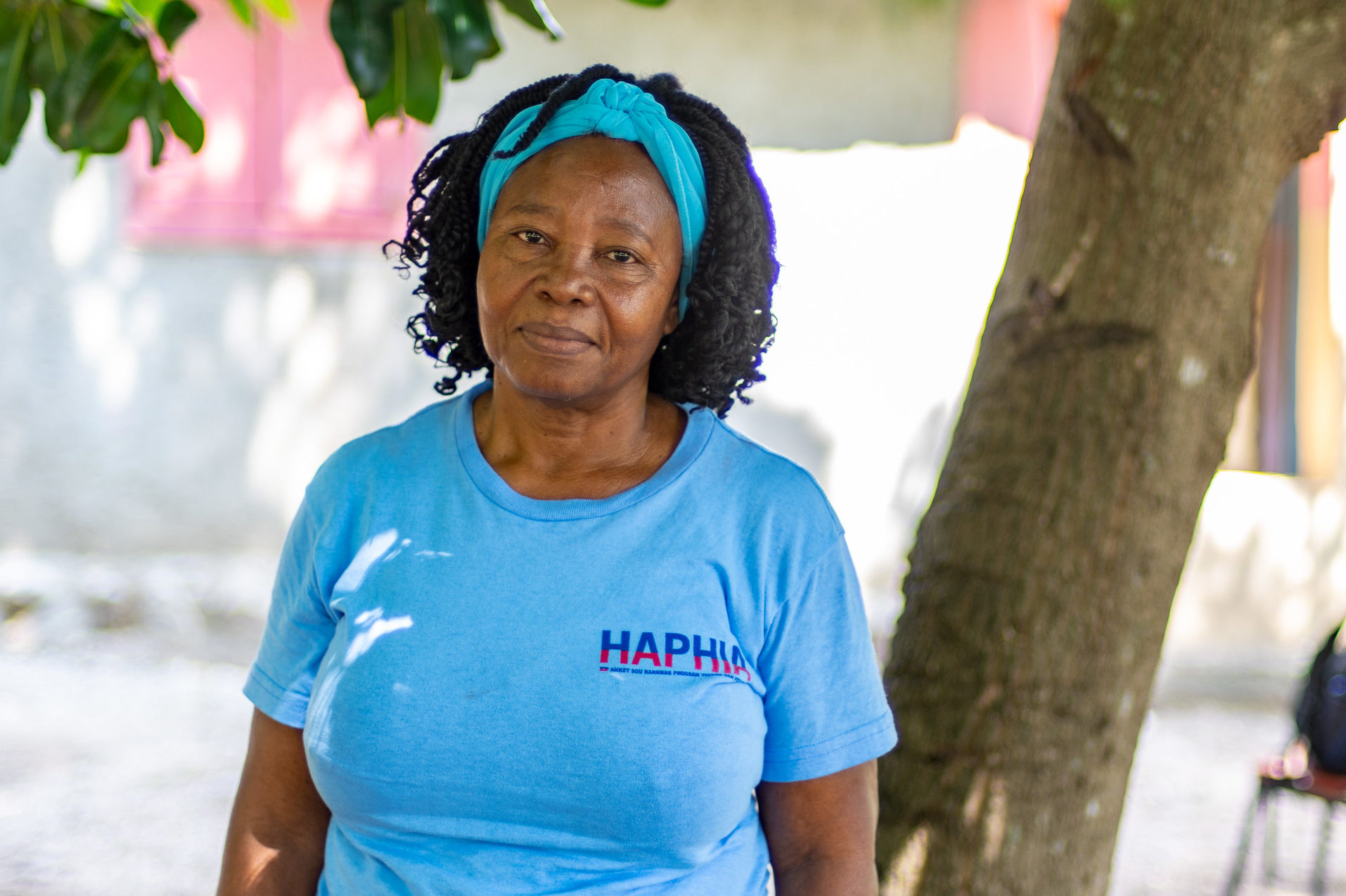In the Caribbean nation of Haiti, could women be the key to a healthier society? Gladys Mayard, the community mobilization lead for the Haiti Population-based HIV Impact Assessment (HaPHIA) survey, would say so.
Though Haiti has made tremendous progress over the last decade in reducing new HIV infections by 37% and AIDS-related deaths by 46%, it remains one of the most affected countries in the Caribbean region. In response, the government of Haiti launched its first national HIV impact assessment survey to capture the current reach of HIV prevention, treatment, and care programs in June 2019.
At the start of HaPHIA, the nation was confronted with socio-political conflict, which led to several months of demonstrations and closed transportation links, businesses, and schools. National fuel shortages perpetuated the protests and caused major delays in data collection. With several pauses, including for COVID-19 related lockdowns, the HaPHIA team completed data collection nearly a year and a half later, in November 2020.
The HaPHIA survey is a collaboration between the Ministry of Public Health and Population, the Haitian Institute of Childhood, and ICAP at Columbia University with technical support from the U.S. President’s Emergency Plan for AIDS Relief (PEPFAR) through the U.S. Centers for Disease Control and Prevention (CDC).

A critical factor in the ultimate completion of HaPHIA’s data collection was its community mobilization team, led by Gladys Mayard. With over 20 years of experience as a sociologist and anthropologist, Mayard’s role was to introduce and gain acceptance for the survey across all institutions, including at the local government’s town hall meetings, health facilities, and grassroots community organizations in each department (administrative division). The COVID-19 pandemic, along with the existing socio-political circumstances, made the role of community mobilization even more critical.
“Because of the situation of the socio-political circumstances in Haiti, we’ve had to hold a number of additional meetings with mayors, communal assemblies, and municipal boards to introduce them to the objectives of the survey and seek their support to collaborate and provide us with security to bring in the data collection teams,” said Mayard.
Once the community mobilization teams were able to bring in the data collection teams, the HaPHIA survey was welcomed by most selected households in the community.
“Though we haven’t gotten the survey results yet, part of its appeal was to offer a free HIV test to the public,” said Mayard. “As a result of our mobilization, the survey was welcomed, and most people agreed to take the test. Introducing individuals to the objectives of HaPHIA and raising their awareness of the issue of HIV in Haiti encouraged them to participate.”

When discussing the high rates of participation among households in Haiti, Mayard attributed much of it to the role of women.
“I think that women, in their households, have been the foundation of their community’s participation in HaPHIA and also the participation of men,” said Mayard. “After the community mobilization team raised women’s awareness about the survey, they themselves presented it to their husbands and, as a couple, they agreed to participate. Women were the majority at community meetings and even supported us in sharing pamphlets, fliers, and posters about the survey. They often handed out fliers and posters at the market for free, with nothing in exchange.”
The contribution of women in HaPHIA is not exclusive, Mayard shared, as women in Haiti are more likely to seek health care services and advocate for improving health systems.
“In general, health care in Haiti rests on the backs of women,” said Mayard. “Women are responsible for the health of their children and household members. It’s not the father who’s going to say, ‘I’m sending my child to the hospital.’ It’s the woman who assumes the responsibility to go to the hospital, and, furthermore, they also choose where to seek traditional medicine. “That’s why the place of women is really important in Haiti’s health care system. We engage in advocacy to bring their voices into the health care system, because the health of the nation depends on women.”
Part of this engagement includes involving women in the methodology of public health initiatives, such as HaPHIA, and involving them in strategies to implement these projects. With security concerns creating ‘red’ and ‘no-go’ zones across Haiti, Mayard notes that sometimes it is the women who are facilitating entrance into these communities.

This Women’s History Month, Mayard encourages young women to pursue careers in public health and help other women have improved access to health care.
“I’d like to encourage young women to strengthen their capacities with regard to the community public health systems because women are truly the compass for health care, above all, in Haiti,” said Mayard. “Doing so will not only help other women be better emancipated in the health system but will improve the overall health of our society.”
About ICAP
A major global health organization that has been improving public health in countries around the world for nearly two decades, ICAP works to transform the health of populations through innovation, science, and global collaboration. Based at Columbia Mailman School of Public Health, ICAP has projects in more than 30 countries, working side-by-side with ministries of health and local governmental, non-governmental, academic, and community partners to confront some of the world’s greatest health challenges. Through evidence-informed programs, meaningful research, tailored technical assistance, effective training and education programs, and rigorous surveillance to measure and evaluate the impact of public health interventions, ICAP aims to realize a global vision of healthy people, empowered communities, and thriving societies.
About PHIA
Since 2014, the Population-based HIV Impact Assessment (PHIA) Project has conducted nationally representative surveys to capture the state of the HIV epidemic in the most-affected countries. This effort is led by the Ministry of Health in each participating country and funded by the U.S. President’s Emergency Plan for AIDS Relief (PEPFAR) through the U.S. Centers for Disease Control and Prevention (CDC) with technical support from ICAP at Columbia University. The PHIA Project embraces strong and effective partnerships to change the course of the HIV epidemic. For more information on the Population-based HIV Impact Assessment Project, visit: https://phia.icap.columbia.edu/








